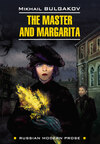Kitabı oku: «The Enchanted April», sayfa 5
Chapter 7
Their eyes followed her admiringly. They had no idea they had been snubbed. It was a disappointment, of course, to find she had forestalled them and that they were not to have the happiness of preparing for her, of watching her face when she arrived and first saw everything, but there was till Mrs. Fisher. They would concentrate on Mrs. Fisher, and would watch her face instead; only, like everybody else, they would have preferred to watch Lady Caroline's.
Perhaps, then, as Lady Caroline had talked of breakfast, they had better begin by going and having it, for there was too much to be done that day to spend any more time gazing at the scenery—servants to be interviewed, the house to be gone through and examined, and finally Mrs. Fisher's room to be got ready and adorned.
They waved their hands gaily at Lady Caroline, who seemed absorbed in what she saw and took no notice, and turning away found the maidservant of the night before had come up silently behind them in cloth slippers with string soles.
She was Francesca, the elderly parlour-maid, who had been with the owner, he had said, for years, and whose presence made inventories unnecessary; and after wishing them good-morning and hoping they had slept well, she told them breakfast was ready in the dining-room on the floor below, and if they would follow her she would lead.
They did not understand a single word of the very many in which Francesca succeeded in clothing this simple information, but they followed her, for it at least was clear that they were to follow, and going down the stairs, and along the broad hall like the one above except for glass doors at the end instead of a window opening into the garden, they were shown into the dining-room; where, sitting at the head of the table having her breakfast, was Mrs. Fisher.
This time they exclaimed. Even Mrs. Arbuthnot exclaimed, though her exclamation was only "Oh."
Mrs. Wilkins exclaimed at greater length. "Why, but it's like having the bread taken out of one's mouth!" exclaimed Mrs. Wilkins.
"How do you do," said Mrs. Fisher. "I can't get up because of my stick." And she stretched out her hand across the table.
They advanced and shook it.
"We had no idea you were here," said Mrs. Arbuthnot.
"Yes," said Mrs. Fisher, resuming her breakfast. "Yes. I am here." And with composure she removed the top of her egg.
"It's a great disappointment," said Mrs. Wilkins. "We had meant to give you such a welcome."
This was the one, Mrs. Fisher remembered, briefly glancing at her, who when she came to Prince of Wales Terrace said she had seen Keats. She must be careful with this one—curb her from the beginning.
She therefore ignored Mrs. Wilkins and said gravely, with a downward face of impenetrable calm bent on her egg, "Yes. I arrived yesterday with Lady Caroline."
"It's really dreadful," said Mrs. Wilkins, exactly as if she had not been ignored. "There's nobody left to get anything ready for now. I feel thwarted. I feel as if the bread had been taken out of my mouth just when I was going to be happy swallowing it."
"Where will you sit?" asked Mrs. Fisher of Mrs. Arbuthnot—markedly of Mrs. Arbuthnot; the comparison with the bread seemed to her most unpleasant.
"Oh, thank you—" said Mrs. Arbuthnot, sitting down rather suddenly next to her.
There were only two places she could sit down in, the places laid on either side of Mrs. Fisher. She therefore sat down in one, and Mrs. Wilkins sat down opposite her in the other.
Mrs. Fisher was at the head of the table. Round her was grouped the coffee and the tea. Of course they were all sharing San Salvatore equally, but it was she herself and Lotty, Mrs. Arbuthnot mildly reflected, who had found it, who had had the work of getting it, who had chosen to admit Mrs. Fisher into it. Without them, she could not help thinking, Mrs. Fisher would not have been there. Morally Mrs. Fisher was a guest. There was no hostess in this party, but supposing there had been a hostess it would not have been Mrs. Fisher, nor Lady Caroline, it would have been either herself or Lotty. Mrs. Arbuthnot could not help feeling this as she sat down, and Mrs. Fisher, the hand which Ruskin had wrung suspended over the pots before her, inquired, "Tea or coffee?" She could not help feeling it even more definitely when Mrs. Fisher touched a small gong on the table beside her as though she had been used to that gong and that table ever since she was little, and, on Francesca's appearing, bade her in the language of Dante bring more milk. There was a curious air about Mrs. Fisher, thought Mrs. Arbuthnot, of being in possession; and if she herself had not been so happy she would have perhaps minded.
Mrs. Wilkins noticed it too, but it only made her discursive brain think of cuckoos. She would no doubt immediately have begun to talk of cuckoos, incoherently, unrestrainably and deplorably, if she had been in the condition of nerves and shyness she was in last time she saw Mrs. Fisher. But happiness had done away with shyness—she was very serene; she could control her conversation; she did not have, horrified, to listen to herself saying things she had no idea of saying when she began; she was quite at her ease, and completely natural. The disappointment of not going to be able to prepare a welcome for Mrs. Fisher had evaporated at once, for it was impossible to go on being disappointed in heaven. Nor did she mind her behaving as hostess. What did it matter? You did not mind things in heaven. She and Mrs. Arbuthnot, therefore, sat down more willingly than they otherwise would have done, one on either side of Mrs. Fisher, and the sun, pouring through the two windows facing east across the bay, flooded the room, and there was an open door leading into the garden, and the garden was full of many lovely things, especially freesias.
The delicate and delicious fragrance of the freesias came in through the door and floated round Mrs. Wilkins's enraptured nostrils. Freesias in London were quite beyond her. Occasionally she went into a shop and asked what they cost, so as just to have an excuse for lifting up a bunch and smelling them, well knowing that it was something awful like a shilling for about three flowers. Here they were everywhere— bursting out of every corner and carpeting the rose beds. Imagine it— having freesias to pick in armsful if you wanted to, and with glorious sunshine flooding the room, and in your summer frock, and its being only the first of April!
"I suppose you realize, don't you, that we've got to heaven?" she said, beaming at Mrs. Fisher with all the familiarity of a fellow-angel.
"They are considerably younger than I had supposed," thought Mrs. Fisher, "and not nearly so plain." And she mused a moment, while she took no notice of Mrs. Wilkins's exuberance, on their instant and agitated refusal that day at Prince of Wales Terrace to have anything to do with the giving or the taking of references.
Nothing could affect her, of course; nothing that anybody did. She was far too solidly seated in respectability. At her back stood massively in a tremendous row those three great names she had offered, and they were not the only ones she could turn to for support and countenance. Even if these young women—she had no grounds for believing the one out in the garden to be really Lady Caroline Dester, she had merely been told she was—even if these young women should all turn out to be what Browning used to call—how well she remembered his amusing and delightful way of putting things—Fly-by-Nights, what could it possibly, or in any way matter to her? Let them fly by night if they wished. One was not sixty-five for nothing. In any case there would only be four weeks of it, at the end of which she would see no more of them. And in the meanwhile there were plenty of places where she could sit quietly away from them and remember. Also there was her own sitting-room, a charming room, all honey-coloured furniture and pictures, with windows to the sea towards Genoa, and a door opening on to the battlements. The house possessed two sitting-rooms, and she explained to that pretty creature Lady Caroline—certainly a pretty creature, whatever else she was; Tennyson would have enjoyed taking her for blows on the downs—who had seemed inclined to appropriate the honey-colored one, that she needed some little refuge entirely to herself because of her stick.
"Nobody wants to see an old woman hobbling about everywhere," she had said. "I shall be quite content to spend much of my time by myself in here or sitting out on these convenient battlements."
And she had a very nice bedroom, too; it looked two ways, across the bay in the morning sun—she liked the morning sun—and onto the garden. There were only two of these bedrooms with cross-views in the house, she and Lady Caroline had discovered, and they were by far the airiest. They each had two beds in them, and she and Lady Caroline had had the extra beds taken out at once and put into two of the other rooms. In this way there was much more space and comfort. Lady Caroline, indeed, had turned hers into a bed-sitting-room, with the sofa out of the bigger drawing-room and the writing-table and the most comfortable chair, but she herself had not had to do that because she had her own sitting-room, equipped with what was necessary. Lady Caroline had thought at first of taking the bigger sitting-room entirely for her own, because the dining-room on the floor below could quite well be used between meals to sit in by the two others, and was a very pleasant room with nice chairs, but she had not liked the bigger sitting-room's shape—it was a round room in the tower, with deep slit windows pierced through the massive walls, and a domed and ribbed ceiling arranged to look like an open umbrella, and it seemed a little dark. Undoubtedly Lady Caroline had cast covetous glances at the honey-coloured room, and if she Mrs. Fisher, had been less firm would have installed herself in it. Which would have been absurd.
"I hope," said Mrs. Arbuthnot, smilingly making an attempt to convey to Mrs. Fisher that though she, Mrs. Fisher, might not be exactly a guest she certainly was not in the very least a hostess, "your room is comfortable."
"Quite," said Mrs. Fisher. "Will you have some more coffee?"
"No, thank you. Will you?"
"No, thank you. There were two beds in my bedroom, filling it up unnecessarily, and I had one taken out. It has made it much more convenient."
"Oh that's why I've got two beds in my room!" exclaimed Mrs. Wilkins, illuminated; the second bed in her little cell had seemed an unnatural and inappropriate object from the moment she saw it.
"I gave no directions," said Mrs. Fisher, addressing Mrs. Arbuthnot, "I merely asked Francesca to remove it."
"I have two in my room as well," said Mrs. Arbuthnot.
"Your second one must be Lady Caroline's. She had hers removed too," said Mrs. Fisher. "It seems foolish to have more beds in a room than there are occupiers."
"But we haven't got husbands here either," said Mrs. Wilkins, "and I don't see any use in extra beds in one's room if one hasn't got husbands to put in them. Can't we have them taken away too?"
"Beds," said Mrs. Fisher coldly, "cannot be removed from one room after another. They must remain somewhere."
Mrs. Wilkins's remarks seemed to Mrs. Fisher persistently unfortunate. Each time she opened her mouth she said something best left unsaid. Loose talk about husbands had never in Mrs. Fisher's circle been encouraged. In the 'eighties, when she chiefly flourished, husbands were taken seriously, as the only real obstacles to sin. Beds too, if they had to be mentioned, were approached with caution; and a decent reserve prevented them and husbands ever being spoken of in the same breath.
She turned more markedly than ever to Mrs. Arbuthnot. "Do let me give you a little more coffee," she said.
"No, thank you. But won't you have some more?"
"No indeed. I never have more than two cups at breakfast. Would you like an orange?"
"No thank you. Would you?"
"No, I don't eat fruit at breakfast. It is an American fashion which I am too old now to adopt. Have you had all you want?"
"Quite. Have you?"
Mrs. Fisher paused before replying. Was this a habit, this trick of answering a simple question with the same question? If so it must be curbed, for no one could live for four weeks in any real comfort with somebody who had a habit.
She glanced at Mrs. Arbuthnot, and her parted hair and gentle brow reassured her. No; it was accident, not habit, that had produced those echoes. She could as soon imagine a dove having tiresome habits as Mrs. Arbuthnot. Considering her, she thought what a splendid wife she would have been for poor Carlyle. So much better than that horrid clever Jane. She would have soothed him.
"Then shall we go?" she suggested.
"Let me help you up," said Mrs. Arbuthnot, all consideration.
"Oh, thank you—I can manage perfectly. It's only sometimes that my stick prevents me—"
Mrs. Fisher got up quite easily; Mrs. Arbuthnot had hovered over her for nothing.
"I'm going to have one of these gorgeous oranges," said Mrs. Wilkins, staying where she was and reaching across to a black bowl piled with them. "Rose, how can you resist them. Look—have this one. Do have this beauty—" And she held out a big one.
"No, I'm going to see to my duties," said Mrs. Arbuthnot, moving towards the door. "You'll forgive me for leaving you, won't you," she added politely to Mrs. Fisher.
Mrs. Fisher moved towards the door too; quite easily; almost quickly; her stick did not hinder her at all. She had no intention of being left with Mrs. Wilkins.
"What time would you like to have lunch?" Mrs. Arbuthnot asked her, trying to keep her head as at least a non-guest, if not precisely a hostess, above water.
"Lunch," said Mrs. Fisher, "is at half-past twelve."
"You shall have it at half-past twelve then," said Mrs. Arbuthnot. "I'll tell the cook. It will be a great struggle," she continued, smiling, "but I've brought a little dictionary—"
"The cook," said Mrs. Fisher, "knows."
"Oh?" said Mrs. Arbuthnot.
"Lady Caroline has already told her," said Mrs. Fisher.
"Oh?" said Mrs. Arbuthnot.
"Yes. Lady Caroline speaks the kind of Italian cooks understand.
I am prevented going into the kitchen because of my stick. And even if I were able to go, I fear I shouldn't be understood."
"But—" began Mrs. Arbuthnot.
"But it's too wonderful," Mrs. Wilkins finished for her from the table, delighted with these unexpected simplifications in her and Rose's lives. "Why, we've got positively nothing to do here, either of us, except just be happy. You wouldn't believe," she said, turning her head and speaking straight to Mrs. Fisher, portions of orange in either hand, "how terribly good Rose and I have been for years without stopping, and how much now we need a perfect rest."
And Mrs. Fisher, going without answering her out the room, said to herself, "She must, she shall be curbed."
Chapter 8
Presently, when Mrs. Wilkins and Mrs. Arbuthnot, unhampered by any duties, wandered out and down the worn stone steps and under the pergola into the lower garden, Mrs. Wilkins said to Mrs. Arbuthnot, who seemed pensive, "Don't you see that if somebody else does the ordering it frees us?"
Mrs. Arbuthnot said she did see, but nevertheless she thought it rather silly to have everything taken out of their hands.
"I love things to be taken out of my hands," said Mrs. Wilkins.
"But we found San Salvatore," said Mrs. Arbuthnot, "and it is rather silly that Mrs. Fisher should behave as if it belonged only to her."
"What is rather silly," said Mrs. Wilkins with much serenity, "is to mind. I can't see the least point in being in authority at the price of one's liberty."
Mrs. Arbuthnot said nothing to that for two reasons—first, because she was struck by the remarkable and growing calm of the hitherto incoherent and excited Lotty, and secondly because what she was looking at was so very beautiful.
All down the stone steps on either side were periwinkles in full flower, and she could now see what it was that had caught at her the night before and brushed, wet and scented, across her face. It was wistaria. Wistaria and sunshine . . . she remembered the advertisement. Here indeed were both in profusion. The wistaria was tumbling over itself in its excess of life, its prodigality of flowering; and where the pergola ended the sun blazed on scarlet geraniums, bushes of them, and nasturtiums in great heaps, and marigolds so brilliant that they seemed to be burning, and red and pink snapdragons, all outdoing each other in bright, fierce colour. The ground behind these flaming things dropped away in terraces to the sea, each terrace a little orchard, where among the olives grew vines on trellises, and fig-trees, and peach-trees, and cherry-trees. The cherry-trees and peach-trees were in blossom—lovely showers of white and deep rose-colour among the trembling delicacy of the olives; the fig-leaves were just big enough to smell of figs, the vine-buds were only beginning to show. And beneath these trees were groups of blue and purple irises, and bushes of lavender, and grey, sharp cactuses, and the grass was thick with dandelions and daisies, and right down at the bottom was the sea. Colour seemed flung down anyhow, anywhere; every sort of colour, piled up in heaps, pouring along in rivers—the periwinkles looked exactly as if they were being poured down each side of the steps—and flowers that grow only in borders in England, proud flowers keeping themselves to themselves over there, such as the great blue irises and the lavender, were being jostled by small, shining common things like dandelions and daisies and the white bells of the wild onion, and only seemed the better and the more exuberant for it.
They stood looking at this crowd of loveliness, this happy jumble, in silence. No, it didn't matter what Mrs. Fisher did; not here; not in such beauty. Mrs. Arbuthnot's discomposure melted out of her. In the warmth and light of what she was looking at, of what to her was a manifestation, and entirely new side of God, how could one be discomposed? If only Frederick were with her, seeing it too, seeing as he would have seen it when first they were lovers, in the days when he saw what she saw and loved what she loved. . .
She sighed.
"You mustn't sigh in heaven," said Mrs. Wilkins. "One doesn't."
"I was thinking how one longs to share this with those one loves," said Mrs. Arbuthnot.
"You mustn't long in heaven," said Mrs. Wilkins. "You're supposed to be quite complete there. And it is heaven, isn't it, Rose? See how everything has been let in together—the dandelions and the irises, the vulgar and the superior, me and Mrs. Fisher—all welcome, all mixed up anyhow, and all so visibly happy and enjoying ourselves."
"Mrs. Fisher doesn't seem happy—not visibly, anyhow," said Mrs. Arbuthnot, smiling.
"She'll begin soon, you'll see."
Mrs. Arbuthnot said she didn't believe that after a certain age people began anything.
Mrs. Wilkins said she was sure no one, however old and tough, could resist the effects of perfect beauty. Before many days, perhaps only hours, they would see Mrs. Fisher bursting out into every kind of exuberance. "I'm quite sure," said Mrs. Wilkins, "that we've got to heaven, and once Mrs. Fisher realizes that that's where she is, she's bound to be different. You'll see. She'll leave off being ossified, and go all soft and able to stretch, and we shall get quite—why, I shouldn't be surprised if we get quite fond of her."
The idea of Mrs. Fisher bursting out into anything, she who seemed so particularly firmly fixed inside her buttons, made Mrs. Arbuthnot laugh. She condoned Lotty's loose way of talking of heaven, because in such a place, on such a morning, condonation was in the very air. Besides, what an excuse there was.
And Lady Caroline, sitting where they had left her before breakfast on the wall, peeped over when she heard laughter, and saw them standing on the path below, and thought what a mercy it was they were laughing down there and had not come up and done it round her. She disliked jokes at all times, but in the morning she hated them; especially close up; especially crowding in her ears. She hoped the originals were on their way out for a walk, and not on their way back from one. They were laughing more and more. What could they possibly find to laugh at?
She looked down on the tops of their heads with a very serious face, for the thought of spending a month with laughers was a grave one, and they, as though they felt her eyes, turned suddenly and looked up.
The dreadful geniality of those women. . .
She shrank away from their smiles and wavings, but she could not shrink out of sight without falling into the lilies. She neither smiled nor waved back, and turning her eyes to the more distant mountains surveyed them carefully till the two, tired of waving, moved away along the path and turned the corner and disappeared.
This time they both did notice that they had been met with, at least, unresponsiveness.
"If we weren't in heaven," said Mrs. Wilkins serenely, "I should say we had been snubbed, but as nobody snubs anybody there of course we can't have been."
"Perhaps she is unhappy," said Mrs. Arbuthnot.
"Whatever it is she is she'll get over it here," said Mrs. Wilkins with conviction.
"We must try and help her," said Mrs. Arbuthnot.
"Oh, but nobody helps anybody in heaven. That's finished with.
You don't try to be, or do. You simply are."
Well, Mrs. Arbuthnot wouldn't go into that—not here, not to-day. The vicar, she knew, would have called Lotty's talk levity, if not profanity. How old he seemed from here; an old, old vicar.
They left the path, and clambered down the olive terraces, down and down, to where at the bottom the warm, sleepy sea heaved gently among the rocks. There a pine-tree grew close to the water, and they sat under it, and a few yards away was a fishing-boat lying motionless and green-bellied on the water. The ripples of the sea made little gurgling noises at their feet. They screwed up their eyes to be able to look into the blaze of light beyond the shade of their tree. The hot smell from the pine-needles and from the cushions of wild thyme that padded the spaces between the rocks, and sometimes a smell of pure honey from a clump of warm irises up behind them in the sun, puffed across their faces. Very soon Mrs. Wilkins took her shoes and stockings off, and let her feet hang in the water. After watching her a minute Mrs. Arbuthnot did the same. Their happiness was then complete. Their husbands would not have known them. They left off talking. They ceased to mention heaven. They were just cups of acceptance.
Meanwhile Lady Caroline, on her wall, was considering her position. The garden on the top of the wall was a delicious garden, but its situation made it insecure and exposed to interruptions. At any moment the others might come and want to use it, because both the hall and the dining-room had doors opening straight into it. Perhaps, thought Lady Caroline, she could arrange that it should be solely hers. Mrs. Fisher had the battlements, delightful with flowers, and a watch-tower all to herself, besides having snatched the one really nice room in the house. There were plenty of places the originals could go to—she had herself seen at least two other little gardens, while the hill the castle stood on was itself a garden, with walks and seats. Why should not this one spot be kept exclusively for her? She liked it; she liked it best of all. It had the Judas tree and an umbrella pine, it had the freesias and the lilies, it had a tamarisk beginning to flush pink, it had the convenient low wall to sit on, it had from each of its three sides the most amazing views—to the east the bay and mountains, to the north the village across the tranquil clear green water of the little harbour and the hills dotted with white houses and orange groves, and to the west was the thin thread of land by which San Salvatore was tied to the mainland, and then the open sea and the coast line beyond Genoa reaching away into the blue dimness of France. Yes, she would say she wanted to have this entirely to herself. How obviously sensible if each of them had their own special place to sit in apart. It was essential to her comfort that she should be able to be apart, left alone, not talked to. The others ought to like it best too. Why herd? One had enough of that in England, with one's relations and friends—oh, the numbers of them!—pressing on one continually. Having successfully escaped them for four weeks why continue, and with persons having no earthly claim on one, to herd?
She lit a cigarette. She began to feel secure. Those two had gone for a walk. There was no sign of Mrs. Fisher. How very pleasant this was.
Somebody came out through the glass doors, just as she was drawing a deep breath of security. Surely it couldn't be Mrs. Fisher, wanting to sit with her? Mrs. Fisher had her battlements. She ought to stay on them, having snatched them. It would be too tiresome if she wouldn't, and wanted not only to have them and her sitting-room but to establish herself in this garden as well.
No; it wasn't Mrs. Fisher, it was the cook.
She frowned. Was she going to have to go on ordering the food?
Surely one or other of those two waving women would do that now.
The cook, who had been waiting in increasing agitation in the kitchen, watching the clock getting nearer to lunch—time while she still was without knowledge of what lunch was to consist of, had gone at last to Mrs. Fisher, who had immediately waved her away. She then wandered about the house seeking a mistress, any mistress, who would tell her what to cook, and finding none; and at last, directed by Francesca, who always knew where everybody was, came out to Lady Caroline.
Dominica had provided this cook. She was Costanza, the sister of that one of his cousins who kept a restaurant down on the piazza. She helped her brother in his cooking when she had no other job, and knew every sort of fat, mysterious Italian dish such as the workmen of Castagneto, who crowded the restaurant at midday, and the inhabitants of Mezzago when they came over on Sundays, loved to eat. She was a fleshless spinster of fifty, grey-haired, nimble, rich of speech, and thought Lady Caroline more beautiful than anyone she had ever seen; and so did Domenico; and so did the boy Giuseppe who helped Domenico and was, besides, his nephew; and so did the girl Angela who helped Francesca and was, besides, Domenico's niece; and so did Francesca herself. Domenico and Francesca, the only two who had seen them, thought the two ladies who arrived last very beautiful, but compared to the fair young lady who arrived first they were as candles to the electric light that had lately been installed, and as the tin tubs in the bedrooms to the wonderful new bathroom their master had had arranged on his last visit.
Lady Caroline scowled at the cook. The scowl, as usual, was transformed on the way into what appeared to be an intent and beautiful gravity, and Costanza threw up her hands and took the saints aloud to witness that here was the very picture of the Mother of God.
Lady Caroline asked her crossly what she wanted, and Costanza's head went on one side with delight at the sheer music of her voice. She said, after waiting a moment in case the music was going to continue, for she didn't wish to miss any of it, that she wanted orders; she had been to the Signorina's mother, but in vain.
"She is not my mother," repudiated Lady Caroline angrily; and her anger sounded like the regretful wail of a melodious orphan.
Costanza poured forth pity. She too, she explained, had no mother— Lady Caroline interrupted with the curt information that her mother was alive and in London.
Costanza praised God and the saints that the young lady did not yet know what it was like to be without a mother. Quickly enough did misfortunes overtake one; no doubt the young lady already had a husband.
"No," said Lady Caroline icily. Worse than jokes in the morning did she hate the idea of husbands. And everybody was always trying to press them on her—all her relations, all her friends, all the evening papers. After all, she could only marry one, anyhow; but you would think from the way everybody talked, and especially those persons who wanted to be husbands, that she could marry at least a dozen.
Her soft, pathetic "No" made Costanza, who was standing close to her, well with sympathy.
"Poor little one," said Costanza, moved actually to pat her encouragingly on the shoulder, "take hope. There is still time."
"For lunch," said Lady Caroline freezingly, marveling as she spoke that she should be patted, she who had taken so much trouble to come to a place, remote and hidden, where she could be sure that among other things of a like oppressive nature pattings also were not, "we will have—"
Costanza became business-like. She interrupted with suggestions, and her suggestions were all admirable and all expensive.
Lady Caroline did not know they were expensive, and fell in with them at once. They sounded very nice. Every sort of young vegetables and fruits came into them, and much butter and a great deal of cream and incredible numbers of eggs. Costanza said enthusiastically at the end, as a tribute to this acquiescence, that of the many ladies and gentlemen she had worked for on temporary jobs such as this she preferred the English ladies and gentlemen. She more than preferred them—they roused devotion in her. For they knew what to order; they did not skimp; they refrained from grinding down the faces of the poor.
From this Lady Caroline concluded that she had been extravagant, and promptly countermanded the cream.
Costanza's face fell, for she had a cousin who had a cow, and the cream was to have come from them both.
"And perhaps we had better not have chickens," said Lady Caroline.




















